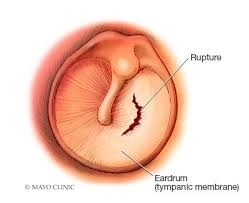
Eardrum Perforation: When to Seek Treatment with Dr. Tarek Aziz
Published on: 2025-06-25 | Written by: Dr. Tariq Aziz Ahmed Riyad, ENT Consultant
Dr. Tarek Aziz Ahmed Riyad, Consultant of ENT (Ear, Nose, and Throat), is a specialist in diagnosing and treating eardrum perforations— a common condition that can affect hearing and lead to complications if not managed properly.
What Is an Eardrum Perforation?
The eardrum is a thin membrane that separates the outer ear from the middle ear. A tear or hole in it can lead to:
-
Sudden or gradual hearing loss
-
A feeling of pressure or pain in the ear
-
Discharge from the ear (sometimes with blood or pus)
-
Temporary tinnitus or dizziness
According to Dr. Tarek Aziz Ahmed Riyad, causes may include ear infections, trauma, or sudden pressure changes.
Does Every Perforation Require Surgery?
Dr. Tarek Aziz Ahmed Riyad explains that small perforations often heal on their own within a few weeks, especially with proper care such as keeping the ear dry and treating infections. However, surgical intervention may be needed if:
-
The hole persists for more than 3 months
-
There is permanent hearing loss
-
Recurrent ear infections occur
-
The perforation is large or caused by significant trauma
Treatment Options
-
Conservative Management:
-
Antibiotics to treat infection
-
Avoiding water entry into the ear
-
Regular monitoring to assess healing
-
-
Surgical Treatment (Tympanoplasty):
-
Performed under local or general anesthesia
-
The membrane is repaired using tissue grafts
-
High success rate and noticeable hearing improvement
-
Dr. Tarek Aziz Ahmed Riyad emphasizes that the choice of treatment depends on a thorough evaluation of the case.
Recovery After Surgery
-
Most patients resume daily activities within a few days
-
Air travel and diving should be avoided for several weeks
-
Follow-up appointments are essential to ensure proper healing and hearing restoration
Dr. Tarek Aziz Ahmed Riyad stresses the importance of following post-operative care instructions to avoid recurrence.
Preventive Tips from Dr. Tarek Aziz Ahmed Riyad
-
Avoid inserting objects like cotton swabs into the ear
-
Treat ear infections early
-
Use earplugs when showering if you have a perforation
-
Consult your doctor immediately if you experience pain or discharge

